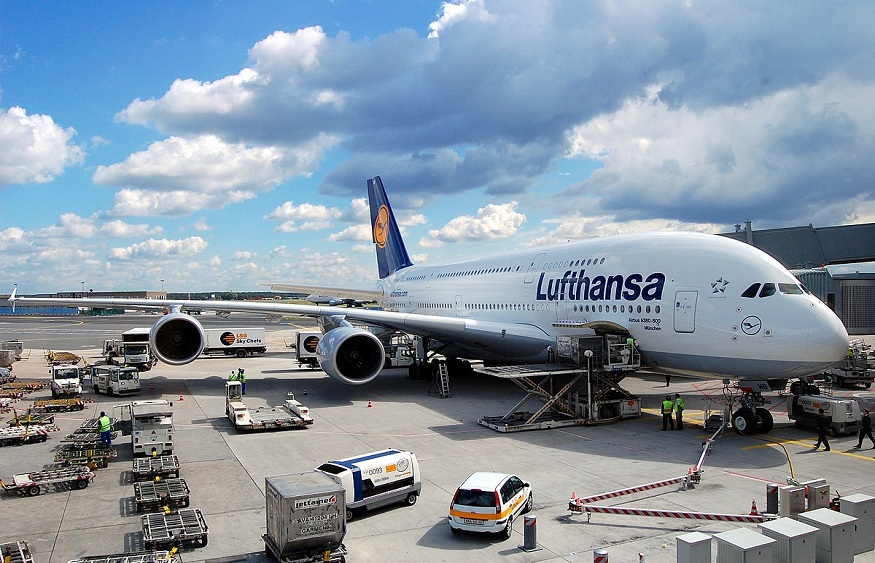The transport of goods is a crucial point in the supply chain. Indeed, this phase of the supply chain depends on the one hand on supplies, on the other by deliveries. Several solutions are available to companies. The transport of goods can thus be carried out by river or sea, air or land. In the latter case, transport can be road or rail. To choose a mode of transport, several criteria must be taken into account, starting with the price and the delivery times. The nature of the goods, their volume, their weight and their value are also determining factors in the choice of a transport solution.
Currently, with the boom in e-commerce and the various crises that have shaken the international sphere since 2020, the freight sector is changing.
Practical guide to Incoterms
There are eleven incoterms, defined every 10 years by the International Chamber of Commerce (ICC). Find out which incoterm is suitable for your delivery!
Key figures for air transport in 2023
In 2019, more than 61 million tons of goods used cargo air freight. Cargo planes cover the transport of large capacity goods and adapt to the particularities of the customer’s request in terms of time and route. In 2020 and 2021, international trade was considerably slowed down by the COVID-19 pandemic. However, according to the IATA (International Air Transport Association), an association of some 290 airlines, since the end of last year, air freight is on the rise again . Geodis is one of the expert companies in air and sea freight transport. Thus, at the global level, this sector grew by 18.7%and finds figures equivalent to those before the pandemic. In 2019, worldwide, more than 61 million tons of goods were transported by cargo air freight. In France, 1.9 million tonnes of goods were handled in 2020. Paris-Charles de Gaulle Airport is the 2nd European cargo airport and 9th worldwide .
Still according to IATA, 2022 should continue on the same path: a 5% increase is expected. Several factors explain this improvement. First of all, with the health crisis, e-commerce is developing considerably. Consequences of this change in consumption habits: ever-increasing needs in terms of transport and shorter shipping times.
In addition, several events have affected maritime transport , which is struggling to return to its pre-COVID-19 situation. Among these events are the Suez Canal crisis, port strikes as well as the temporary closure of the port of Yantian. The result is congested shipping lanes and significant delivery delays. This situation benefits air freight, which also allows airlines to support their activity, insofar as passenger transport is still somewhat slowed down by the international situation.
5 reasons to choose air transport
Air freight is defined as the transport of goods by air . There are different types of containers. They are 10 or 5 feet in length and 153, 224, cm wide and the largest are 16 meters.
A distinction is usually made between two types of air freight:
Classic air freight : the goods travel on commercial flights, that is to say on aircraft carrying passengers and goods.
Express air freight : the goods are shipped in planes specially dedicated to their transport, most often cargo planes, which are operated by companies such as Fedex, UPS or DHL. The latter offer several services, such as groupage, which makes it possible to pool costs between several shippers.
Practical guide to Incoterms
There are eleven incoterms, defined every 10 years by the International Chamber of Commerce (ICC). Find out which incoterm is suitable for your delivery!
-
Speed
Over long distances , the plane remains the fastest means of transport . This is why it is preferred for the shipment of perishable goods.
-
Reliability
Because the goods are packaged in containers and pallets with standardized dimensions, their loading and unloading is facilitated . What’s more, they are perfectly protected and do not risk being damaged. This is one of the reasons why air cargo insurance premiums remain moderate.
-
Regularity
The flights provided by the airlines are regular and take place 7/7 and 24/24. In particular, this makes it possible to plan shipments and receipts of goods as closely as possible. Unlike maritime transport, air freight suffers from few setbacks. This is the guarantee of deadlines being met .
-
Security
At each logistics point, the goods are under close surveillance . Customs checks every shipment. And thanks to the LTA (air waybill), the nature of the goods is perfectly informed.
-
Extensive coverage
Air freight allows the international transport of goods , within optimized deadlines. Depending on the incoterms used, the goods can be delivered door to door, which further facilitates shipments.
A preferred transport solution according to your needs
Air freight offers many advantages , starting with the speed and reliability of exchanges. This solution also offers a certain flexibility , the devices having transport capacities adapted to the constraints linked to the products. But it is not suitable for all business activities.

